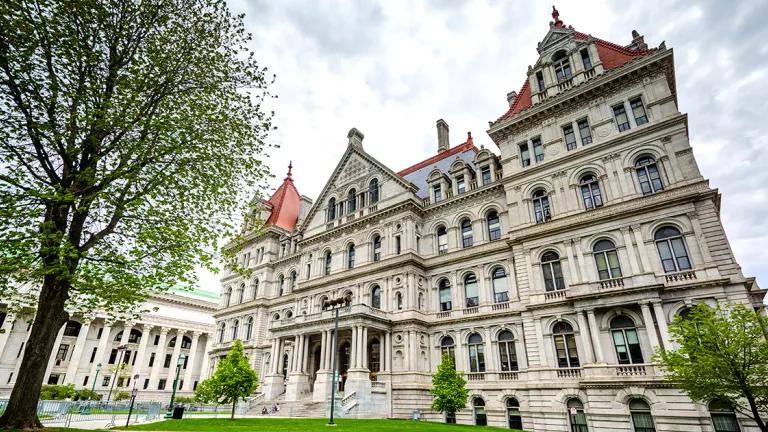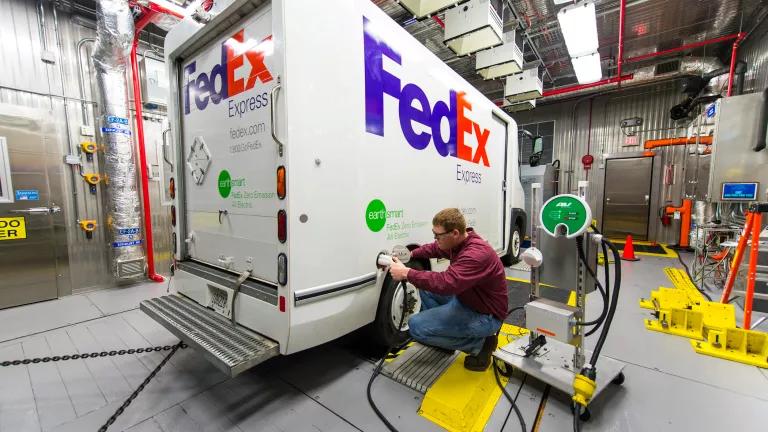For several decades now, Illinois has been administering a permitting program to make sure that big new sources of air pollution put on modern pollution controls. As the name implies, the "prevention of significant deterioration," or PSD, program keeps those new pollution sources - and any existing sources that undergo major modifications - from mucking up air quality in parts of the state that are successfully meeting air quality standards. Program administration is made easier by the fact that the Illinois EPA simply applies the federal PSD regulations crafted by the US EPA, and challenges to its PSD permitting decisions are heard by the US EPA's Environmental Appeals Board - a well-respected body housing extensive expertise in the complexities of the Clean Air Act.
Sounds like a working system, right? Well, it seems some Illinois legislators have never heard the expression, if it ain't broke, don't fix it. Backed by the industry lobbyists at the Illinois Environmental Regulatory Group, Senator Sue Rezin has proposed a bill, SB1672, that would require Illinois to walk away from its arrangement with US EPA and start handling everything itself. That is, Illinois would have to adopt its own regulations and stop using the federal regulations; and the Illinois Pollution Control Board would have to start hearing permit appeals instead of US EPA's Environmental Appeals Board. And - this is where it gets stranger - the bill would require that the Illinois PSD regulations be as stringent as the US EPA's regulations, which the Clean Air Act requires; but would prohibit them from being any more stringent than the US EPA regulations, either. In other words, the bill would require Illinois to adopt something close to a copy of the federal regulations.
At this point, if you're a rational person, you're asking, why exactly would we want to do that? It's an excellent question. Abandoning the federal partnership would put a significant new resource burden on Illinois. Promulgating new regulations can require a protracted public hearing process before the Pollution Control Board. While promulgating PSD regulations closely resembling the federal regulations would be somewhat less complicated than other Board rulemakings (witness the 8 years and counting process of revising Chicago-area water regulations, starting to resemble something out of Dickens' Bleak House), the process is never smooth sailing. And once the Illinois program were in place, the Pollution Control Board would have the added responsibility of hearing permit appeals in place of US EPA's Appeals Board. To what possible end?
Unfortunately, the answer to that becomes a little clearer when we look at some of the potentially damaging results of messing with the current system, and some of the arguments being made in favor of doing that. The bill's proponents - which include Marathon Oil, the Chemical Industry Council, and the Farm Bureau - are talking about how it will "streamline" permitting. And when industry talks about streamlining, watch your back, because it's a pretty sure bet that the only thing being streamlined is the oncoming freight train of special interests about to roll right over the public's rights. It's fairly clear that the actual dual goals here are to hamstring Illinois EPA from ever getting out ahead of the federal government should our state's specific circumstances call for it; and limiting Illinoisans' right to challenge permits that don't meet legal requirements.
Regarding the first goal, there may well come a time in the future when Illinois EPA identifies a state-specific need to promulgate PSD permitting requirements that go beyond what the federal regulations require as a minimum. The Agency stepped up in such a proactive manner a few years back in establishing Illinois' successful mercury control program, which gave our state a healthy jump start on protecting the state's children from that potent neurotoxin, with federal controls coming later. This action is in line with a core principle on which Congress based the Clean Air Act: states have the primary responsibility for protecting their citizens from dirty air, once basic federal standards have been met. Along the same lines, sometimes Illinois' circumstances may call for PSD requirements that are more stringent than federal requirements. Which is, of course, pretty much the last thing industry and its friends want.
Implementing SB1672, with its requirement to create an Illinois PSD program that strictly mimics the federal regulations, could potentially even constrain Illinois' interpretation of its new regulatory program, regardless of the fact it would be state not federal law. That is, industry would likely argue that any time US EPA issued a guidance document or decision limiting the reach of its regulations, Illinois would be forced to follow suit when interpreting its counterpart regulations. That setup would run directly afoul of the larger intent of the Clean Air Act, which is to give states latitude to implement clean air programs in ways that make sense for them. And it could have some very unfortunate real-world consequences. For instance, there has been a lot of pressure from industry over the years to limit the types of pollution controls that new and modified coal-fired power plants subject to PSD can be required to use. We think these dirty plants should be made to consider not only control technology to put on their smokestacks, but also using a different, cleaner fuel type altogether. The coal industry, not surprisingly, disagrees. To the extent US EPA agrees with industry's position in guidance or decisions, SB 1672 could arguably leave Illinois stuck with it too, and our state would thereby lose a valuable regulatory tool for addressing its biggest pollution sources.
As to the second goal, the bill proponents appear to be under the impression that SB 1672 will make room for an Illinois PSD program that limits citizens' right to appeal deficient permits. Fortunately, on this point, they're barking up the wrong tree. US EPA has made pretty clear over the years that state PSD programs have to provide appeal rights comparable to the federal program's appeal rights - which allow anyone who has submitted comments on an issue during the permitting process to appeal on that issue. An Illinois program would have to be approved by US EPA under the Clean Air Act, and we're reasonably confident that the federal Agency would quickly put the kibosh on any program that tried to squelch citizen appeal rights. In any event, it's a solution in search of a problem. In the past 5 years, IEPA has issued 13 PSD permits, and only three of them were appealed to the EPA Environmental Appeals Board. Both appeals were found meritorious, and in the third case IEPA withdrew the (very faulty) permit after receiving the appeal. Does that sound like rampant obstructive frivolous citizen litigation to you? Me neither.
SB 1672 was temporarily derailed by a legal glitch, and has been sent back to the drawing table for revisions. As far as we're concerned, though, there is no sensible reason in the world to try to fix that bad bill up. It deserves to be put to rest on the scrap heap together with every other industry-sponsored effort to weaken the law's protection of the air Illinoisans breathe.




